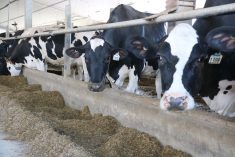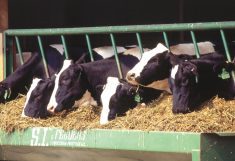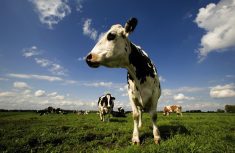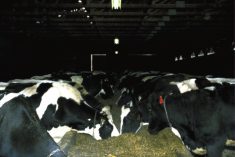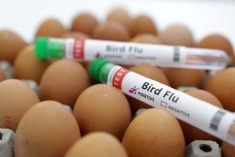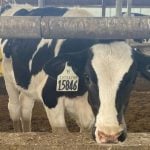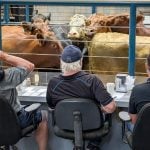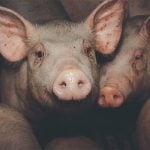A strain of salmonella resistant to multiple antimicrobials is spreading in Ontario and Quebec cattle herds.
There have been 23 cases of Salmonella Dublin in 15 herds reported in Ontario since 2012, but the numbers have been increasing each year. There were eight cases reported in 2015 and four in 2016 through August.
Dr. Dave Renaud, a veterinarian completing his doctorate in the department of population medicine at the Ontario Veterinary College, told the recent Healthy Calf Conference — held in Stratford by the Veal Farmers of Ontario — that the disease is difficult to diagnose and to treat.
Read Also
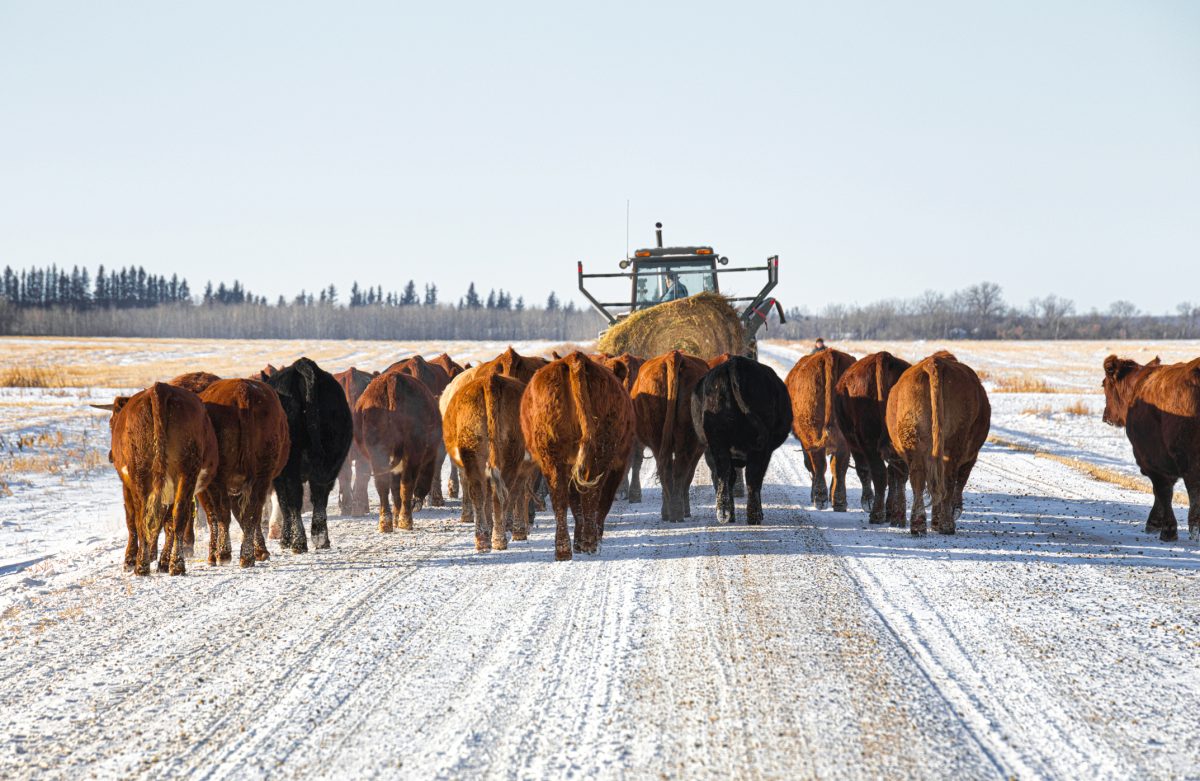
U.S. livestock: Cattle sink ahead of semi-annual inventory report
Chicago cattle futures fell on Thursday ahead of the USDA’s semi-annual cattle inventory report. Hog futures were mixed. Most-traded April…
“It can cause massive devastation in a herd,” he said.
The strain has been found in New York state for more than 20 years and has been seen in Quebec since 2011.
A more recent study in Quebec showed it is found across the province and, in a survey of 169 dairy herds, 8.9 per cent of herds had at least one cow that was a carrier of the disease.
In Ontario, cases have been focused in southwestern Ontario. It has also been found in Alberta, said Renaud.
The disease mostly affects calves between two and five months of age, which is different from most calfhood diseases which are at their most lethal in young calves.
Most salmonella bacteria wreak their havoc in the guts of animals, causing diarrhea that results in dehydration. Salmonella Dublin mostly shows up as septicemia and pneumonia. Septicemia is when blood is poisoned due to toxins caused by a bacterial infection. It is difficult to treat when the strain is resistant to many common antimicrobials.
The pneumonia is even more difficult to diagnose as its symptoms are common to other pneumonia cases. That means diagnosis is only possible through testing, and there is no lab yet in Ontario that conducts the blood ELISA test for Salmonella Dublin.
Tests have showed that 75 per cent of the strains have ampicillin, ampicillin-sulbactam, ceftiofur and tetracycline resistance.
“Strains are showing resistance to common antibiotics,” said Renaud. “It leads to very poor response to treatment.”
The biggest issues are on veal or dairy beef farms, as they bring in calves from multiple sources, with multiple disease statuses.
Cows can be healthy and be carriers of Salmonella Dublin and can then shed the vaccine, which creates challenges for monitoring and eliminating the bacteria on a farm.
Bumping up biosecurity
The best defence for farmers is better biosecurity, Renaud said. Areas he identified where biosecurity can be improved include:
- Maintain a closed herd, or purchase from low-risk herds
- Quarantine newly arrived cattle
- Minimize stress in newly arrived cattle
- Maintain a clean, well-sanitized maternity area
- Avoid adult-to-calf contact
- Minimize fecal contamination
- Limit bird, rodent and waterfowl exposure
- Disinfect and clean high-risk areas
— John Greig is a field editor for Glacier FarmMedia based at Ailsa Craig, Ont. Follow him at @jgreig on Twitter.





